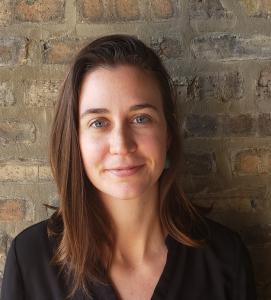Allison Kanner-Botan

Allison is an Anthony C. Yu Doctoral Student Fellow, and she is pursuing a joint degree in Islamic Studies from the Divinity School and in Persian literature from Near Eastern Languages and Civilizations. She received her undergraduate degree from the University of North Carolina at Chapel Hill in 2013.
What does your work focus on / revolve around?
My research focuses on the ways that premodern literary narratives—be they in myth, legend, or allegorical tales—script divisions between man and woman, and human and animal in ways that construct or deconstruct a hierarchy of beings that still impact us today. I read medieval Islamic literature alongside insights from gender and sexuality studies, animal studies, and disability studies, probing the ways in which the alterity of historical texts can push on the boundaries of our own conceptual vocabulary. My dissertation—Mad Love: Islamic Thought and the Politics of Desire in the Legend of Layla and Majnun—centers on what the most famous lovers of Islamic literature can teach us about gender, rationality, and their intersecting impacts on defining the human as well as what it means to love.
Who or what inspires you and your work?
As someone who studies love, I admire scholarship that contends carefully with political questions of historical discourses on this cross-cultural and transtemporal phenomenon and yet who remain unfurled by the topic’s popular interest. I find Regina Schwartz’s readings of Shakespearean love to be quite provocative, as well as relevant to my own considerations of how religious discourses serve as intertexts for literary texts. Anne Carson’s work also looms in the background as to why we care about what really old texts have to say about love in the first place. A bit closer to home, I continuously refer back to Suzanne Stetkeyvtch’s groundbreaking work on gender and ritual in classical Arabic poetry as a way of thinking about the political work of aesthetics, and I think all three scholars exemplify the kind of temporal movement as well as specificity in textual analysis that I aim for in my own work.
What is a favorite course you have taken at the Divinity School and what made it a favorite?
I have really enjoyed a couple of the joint-taught courses that I took, which seem relatively frequent at the Divinity school. During my masters I was fortunate to take a course on Walter Benjamin’s work that was co-taught by Alireza Doostdar and Bruce Lincoln that I still look back on fondly. A bit closer to my own research, I was grateful to participate in a seminar entitled “ Gender and Sexuality in the Study of Religion” that was offered by a dynamic trio (Angie Heo, Sarah Hammerschlag, and Sarah Fredericks). I think these courses invited me to come into more of my own methodological clarity and to see the productive spiciness of scholarly disagreement, as well as the capaciousness that collaboration can offer.
What is an aspect of life at the Divinity School or in Hyde Park that you enjoy?
Early on in the PhD I found the social groups of the Divinity Students Association really helpful for locating like-minded folks whose commitments to social progress and interest in religion as a constitutive force in human life can be difficult to come across. As for life in Hyde Park, I think the best thing by far is Promontory Point. Its accessibility makes for this great place that diffuses much of the seriousness of graduate study, and I think we are all a lot better off because of it.

